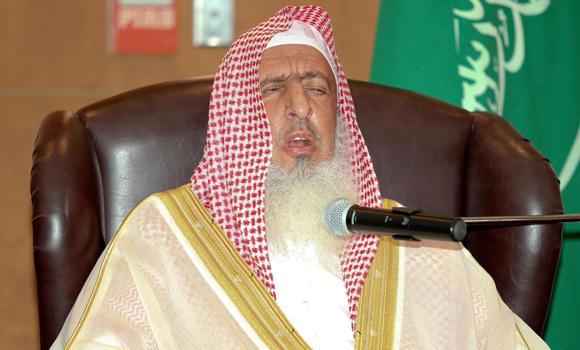
Jeddah, Aug 24: The Grand Mufti Abdulaziz Al-Asheikh has stressed the need to adhere to the teachings of the Qur’an and Sunnah to unify the Ummah and to avoid conflict and division.
He said that deviating from the teachings of the Qur’an, the Prophet (peace be upon him) and his companions is the reason behind current tribulations and calamities, in addition to deviating from moderation and issuing fatwas without knowledge.
He stressed the role of scholars to warn people against the dangers of sedition and show them the right path by disseminating accurate Shariah knowledge derived from the Qur’an and Sunnah. He also warned against reverting to tribalism, extremism and conflicts over control that will cause the Ummah “great calamity.”
The Muslim Ummah is being harmed by the fact it has been occupied with conflicts between factions accusing one another of being disbelievers, he said.
The grand mufti said the Saudi state will remain strong despite efforts to distort its image. The Kingdom occupies a prominent place in modern history, both intellectually and historically.
“The establishment of this state and the accompanying reforms movement by Sheikh Mohammad bin Abdulwahhab marked the start of a new era. It revived in people true faith that comes from the Qur’an and the Prophet’s teachings, and emphasized the spirit of reform, refinement, knowledge-seeking and diligence and freed people from ignorance and superstitions,” he said.
The achievements of the state and its pure Salafi call (teachings of the Prophet and his companions) are the source of inspiration for many reforms and modern movements outside the Arabian Peninsula, in different Arab and Islamic countries.
“This state and its intellectual and historical values didn’t escape modern discrediting and distortion attempts from enemies of our religion and country, so it is of utmost importance to have clarity on the historical status of this country and its intellectual and Shariah-based pillars,” he added.







Comments
Add new comment